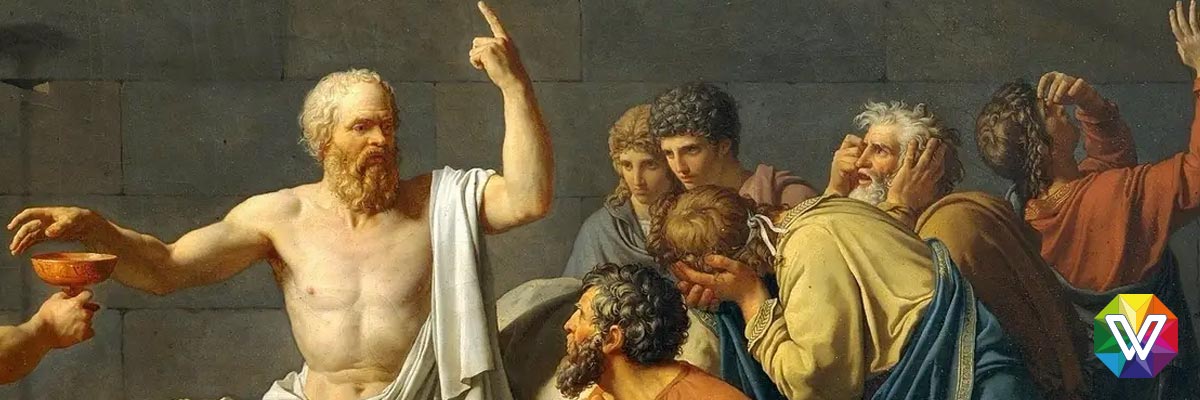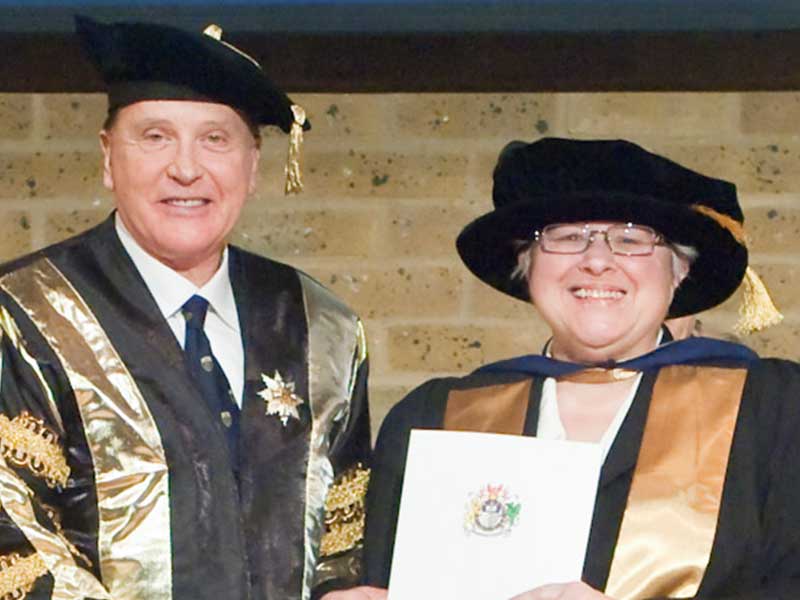Doctor of Philosophy (PhD) in the History of Ideas
Introduction
- Are you a deep thinker?
- Know your Aristotlian metaphysics from your Darwinian evolution?
- Want to have the opportunity to analyse Man’s ideas on creation?
- Would you like the opportunity to publish your own work in various media?
Why not start with a good idea? Enrol on the Warnborough PhD in the History of Ideas!
The History of Ideas is a diachronic study of key ideas as they interact with each other in their journey through time.
The themes in the modules listed below include important milestones in the history of ideas. Thus, the impact of Darwin’s theories on biology has been compared to that of Newton on physics. Although Darwinism affected many different fields and disciplines, it should also be remembered that, when extrapolated to human society, it unfortunately gave us Social Darwinism. This naturally, raises a whole host of moral and ethical issues and is just one example of what the PhD could focus on. The History of Ideas is thus a detailed analysis of where ideas come from and how they interact with other ideas through the course of history.
Key Info
Duration:
3 Years minimum ^
Credits:
160 ECTS credits
Fees:
€18,000 *
Start:
Monthly
Prerequisites:
Master’s degree; or equivalent.

I think what Noor did was challenge me by suggesting research things that would help me with my dissertation but didn’t tell me to do it, just suggested. For me, that was perfect, because if you tell me to do something, I probably won’t do it. I think the mentor support there is phenomenal!
Ruth Todd
- Graduates who are motivated to learn on their own
- Those looking to move into professional academia
- Those with a real passion for intellectual history. Even if you do not have plans to move into the academic field, if you have a real interest in the subject matter you could make the perfect student!
- The rigorous intellectual training that the history of ideas provides has value and appeal to employers in areas such as: teaching (most likely at the college level), course development and curricula design, research, civil service, local government, charities, information technology, solicitor’s firms, publishing and journalism.
80 credits, including a Doctoral Thesis, will be required for the PhD degree. In accordance with Warnborough College regulations, PhD candidates in the History of Ideas will need to fulfil the following requirements:
PART ONE: NINE CORE MODULES (10 credits each) – PhD. History of Ideas
PHI700: Science-Faith Issues
PHI705: A Symbolic Interpretation of Genesis
PHI710: Darwinism
PHI711: Social Darwinism
PHI715: Women’s Rights
PHI720: Political Concepts
PHI825: Historical (Cyclical) Patterns
PHI830: Myths and Fables
PHI835: The History of Ideas in a Literary Context
PART TWO: RESEARCH PROJECT – PhD. History of Ideas
PHI960: Dissertation (20 credits)
Total : 80 credits
Students should submit any six papers (of between 7,000 to 8,000 words each) — one from each section. Students do have the option of suggesting other acceptable topics, subject to the approval of the mentor and the College.
For the research project, students are required to submit a dissertation (of between 20,000 to 25,000 words, worth 20 credits), on any topic, subject to the mentor’s approval.
Students can work with their mentor to create new modules and expand current modules into customised programs, suited to their interests and capabilities. Read the complete module descriptions for information as well as ideas – think of them as a set of guidelines, rather than rules. They will also give you ideas on areas you may wish to pursue most aggressively, in your graduate program.
This program is offered via distance learning. Individual programs can be structured in modular formats; can be project/research directed, or can combine both options. At the graduate level, students are expected to be highly self-motivated and capable of independent work.
Students may be exempt from certain modules in the curriculum, based on prior courses taken, and/or demonstrated knowledge of philosophy and related disciplines. Modules taken at any time during the student’s career may be counted, if they fulfil appropriate requirements.
Upon satisfactory completion of all requirements, students will receive the Doctor of Philosophy in the History of Ideas degree. There are no other exit points in the program. Students will receive credit for modules they have successfully completed.
Program Director: Dr Noor Giovanni Mazhar
Dr. Mazhar’s degree in Italian (B.A., London) was followed by an M.Phil.(London) on Giacomo Zanella: his poetica, poetry and historical significance. Dr. Mazhar’s Ph.D. (Liverpool) on the “Catholic Attitudes to Evolution in Nineteenth-Century Italian Literature” was published, in Venice, by the Veneto Institute of Sciences, Letters and Arts.
His research interests include: literary criticism, Science-Faith issues, the History of Ideas in a literary context and the role of literature in relation to society, science, philosophy and theology.
He has also prepared the modular research programs for the Doctor of Philosophy (PhD) Degree in the Sociology of Literature and the Master of Arts Degree in Bioethics: “A Historical Perspective”.
Student Testimonial
Dr. Mazhar is one of the most skilled educators and professors I have had the privilege to work with. As an educator, Dr. Mazhar is a remarkable communicator that is able to tailor his lectures and communication for the freshman undergraduate students, as well as challenge the graduate student to reach new levels of success.
As a program designer, Dr. Mazhar has the ability to envision and create quality academic courses and programs that are rigorous and relevant at the same time.
As an expert in his field, I unequivocally recommend Dr. Mazhar as an educator, as well as an amazing resource to create quality courseware and programs. Any institution that adopts his curriculum or uses him in an instructional capacity will reap the benefits of his vast knowledge, student-focused mentality, and incredible work ethic.
(David Hopkins, Course Designer and Instructor)
Author, Educator and Consultant
* Fees:
Fees refer to tuition only. It does not include ancillary expenses such as required materials (see above), textbooks, internet connections, postage, telephone calls, insurance and printing. More…
^ Duration:
Depending upon exemptions, performance and the workload, it may take more or less time. Accreditation for Prior Learning or Experience (APEL) can reduce time and fees.

